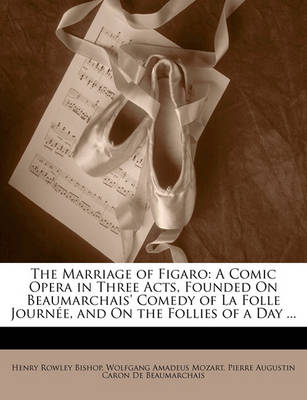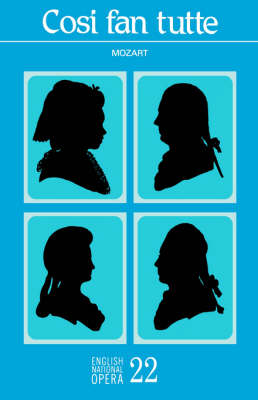English National Opera Guide
4 primary works
Book 3
Originally commissioned by the Viennese music-hall impresario Emanuel Schikaneder, Mozart's Magic Flute has triumphed over these humble beginnings to become one of the most widely performed and best-loved operas in the international repertory. Over the centuries, Mozart's inspired whimsy and profoundly serious symbolism have been interpreted by artists as varied as Marc Chagall and David Hockney. Now, with elegant verve, Davide Pizzigoni translates Mozart's celebrated musical motifs into such charming visual motifs as quirky faces, extravagant shoes, and unexpected flowers. The new translation of the Schikaneder/Mozart libretto by poet and librettist J. D. McClatchy takes an equally fresh and amusing approach, as does his lighthearted but illuminating introduction. The inventive design of the book stages the opera on the page, giving each reader front-row seats at a dazzlingly original performance.
Book 17
The Marriage of Figaro
by Henry Rowley Bishop, Wolfgang Amadeus Mozart, and Pierre Augustin Caron De Beaumarchais
Published December 1937
Sensual gaiety is at the heart of this comic masterpiece which continues the merry tale of the little barber of Seville, a clever common man whose wits overcome his superiors who would suppress him. In paring down the number of players, presenting the scenes more economically, and offering a translation that removes archaic phrasing, Mr. Sahlins delivers a script that can be comfortably staged by present-day theatres.
Book 18
"Don Giovanni" is one of Mozart's most significant and popular operas. This edition begins with a discussion of the comic elements of this unusual comic opera by Michael F. Robinson. An overall view of the score is given by David Wyn Jones, showing how Mozart maintained dramatic momentum over two long acts and giving an overview of the dramatic pacing and orchestration in some of the most important scenes. Christopher Raeburn concludes the commentary with an engaging portrait of Da Ponte, Mozart's 'libertine librettist', and his relationship with the composer. This edition contains more than twenty photographs covering performances of Don Giovanni to the present day, a detailed thematic analysis, the libretto in Italian with a facing literal translation, and an up-to-date discography and bibliography. "Overture Opera Guides" are an invaluable companion for lovers of opera and provide an insight for anyone wanting to explore opera in a little more detail.
Book 22
Cosi Fan Tutte
by Wolfgang Amadeus Mozart, Da Ponte, Lorenzo, Browne, and Cox
Published 31 December 1982
English National Opera Guides are ideal companions to the opera. They provide stimulating introductory articles together with the complete text of each opera in English and the original. "It was a treat so truly intellectual that every ear and every breast, susceptible of harmony and of impression, was gratified to a degree beyond our power to describe." Thus one of the first London reviews in 1811 of Mozart's beautiful opera, "Cosi fan tutte." Its enigmatic mixture of a detached experiment in human foibles and a struggle of sincere emotions has often disturbed audiences: in the last century it was performed under many different titles and extensively bowdlerised. H.C. Robbins Landon observes, however, that Mozart's heartfelt music proves he is openly on the side of the angels (that is, the ladies), not the deceivers, however cynical da Ponte's words alone appear to be. Brian Trowell describes the sophisticated world in which the opera was conceived, while John Stone traces the origins of the libretto to Ancient Greece, medieval Italy and even to China. The text is certainly da Ponte's most original masterpiece and is here presented in a newly revised English version.


